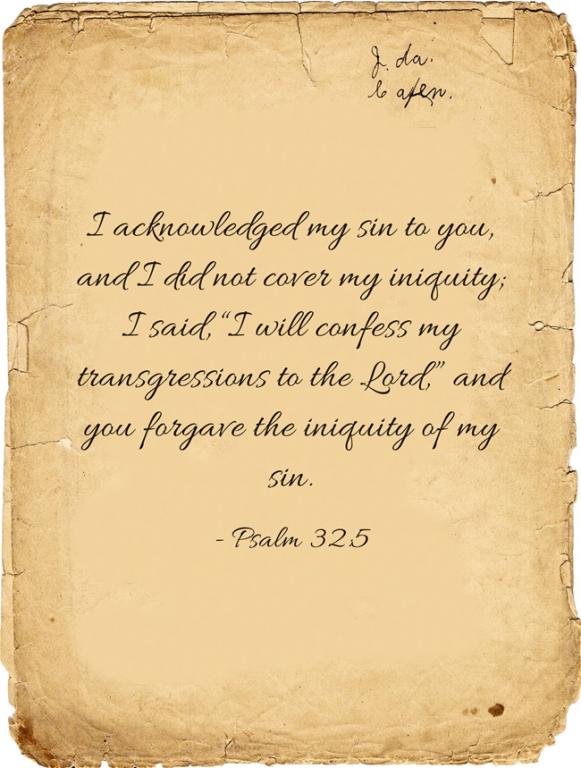Aren’t sin and iniquity the same thing? What’s the difference between these two?
Iniquity Defined
Iniquity in the Hebrew is “`avon” and means “to bend, twist, distort” so iniquities are a bending, twisting, or distorting of the law or God’s Word to different degrees worthy of punishment (as we shall read later). Iniquity is certainly a violation of the right or duty that mankind is under obligation to do. As such, an iniquity can also be a wicked act and immoral conduct or practices that are harmful or offensive to society but especially to God. Exodus 34:17 mentions iniquity and guilt in the same sentence as God says He is “forgiving iniquity and transgression and sin” even adding transgression (which will be discussed in the later). God sometimes uses words like iniquity, transgression, sin, and trespasses to indicate the varying degrees of disobedience. Essentially, in the context within which this word is found, iniquity means “guilt that is worthy of punishment” due to the bending or twisting of the law of God (which sin is the transgression of the law).
When David lusted after Bathsheba and didn’t repent, his iniquity increased because the sin he committed was adultery with her. Even worse, in his continually living in iniquity, the level of worthiness of the punishment he deserved went higher and higher and especially after he conspired to have Bathsheba’s husband, Uriah, murdered. Then he was finally was murdered. The degrees of his disobedience grew and grew as David continued committing greater and greater iniquities so iniquity refers to a willful, knowing transgression of God’s law where one’s desires starts to dominate the person’s life like it did in David’s life.
Sin Defined
First John 3:4 gives perhaps the best definition of sin that there is in the Bible and it says “Everyone who makes a practice of sinning also practices lawlessness; sin is lawlessness.” So sin is the transgression of the law of God. Every iniquity is sin but some sins are not as worthy of punishment as others. For example, in the Old Testament, adultery and murder could bring the death penalty while stealing, having a lower degree of guilt worthy of not as severe a punishment, was still sin nonetheless. David wrote “Surely I was sinful at birth, sinful from the time my mother conceived me” (Psalm 51:4) but he had yet to commit iniquities at birth. Sin (“chatta’ah’”) means missing the mark. It’s like shooting an arrow at a target and you not only miss the bulls eye, you miss the target altogether. Your arrow falls far short just as we all fall far short of the glory of God (Rom 3:23).
Transgression Defined
Psalm 32:5 mentions sin, transgression, and iniquities all in the same verse as it says “I acknowledged my sin to you, and I did not cover my iniquity; I said, “I will confess my transgressions to the Lord,” and you forgave the iniquity of my sin.” By the author’s separating transgressions, iniquities, and sin, he seems to indicate that they are all different things but one thing is certain; all transgressions are sin and all iniquities are sin. Make no mistake about it; transgression is sin…it is like transgressing God’s law which makes it a sin. If your neighbor has a sign up and you can’t legally trespass on his property, but then you go over his fence, you are transgressing the “no trespassing” law and that is sin because you are transgressing the law by your trespassing. Transgression (“Pesha”) is a willful act of disobedience. It is a transgression done specifically to spite God.
Sin, Iniquity, and Transgressions
Let’s return again to Psalm 32:5 to make clear the distinctions between sin, iniquity, and transgressions. David said he will confess (means agree with) his transgressions (his willful acts of disobedience) to the Lord, and God will forgive the iniquity (his bending, twisting, and distorting of the law that grew in the degrees worthy of greater punishment), of his sin (the transgressions of God’s law). All of these are sin; all are just being more specific to the degree of sin, to the degree of the act of the will, and to the degree of breaking God’s laws.
Conclusion
There are differences between sin and iniquity but both require a cleansing and that cleansing must come from the blood of the Lamb of God but here’s how that was accomplished for you: “Since, therefore, we have now been justified by his blood, much more shall we be saved by him from the wrath of God” (Rom 5:9) and it was “For our sake he made him to be sin who knew no sin, so that in him we might become the righteousness of God” (2nd Cor 5:21). That takes away all our transgressions, all our trespasses, all our iniquities…yes, all of our sins.
Article by Jack Wellman
Jack Wellman is Pastor of the Mulvane Brethren church in Mulvane Kansas. Jack is also the Senior Writer at What Christians Want To Know whose mission is to equip, encourage, and energize Christians and to address questions about the believer’s daily walk with God and the Bible. You can follow Jack on Google Plus or check out his book Blind Chance or Intelligent Design available on Amazon.












